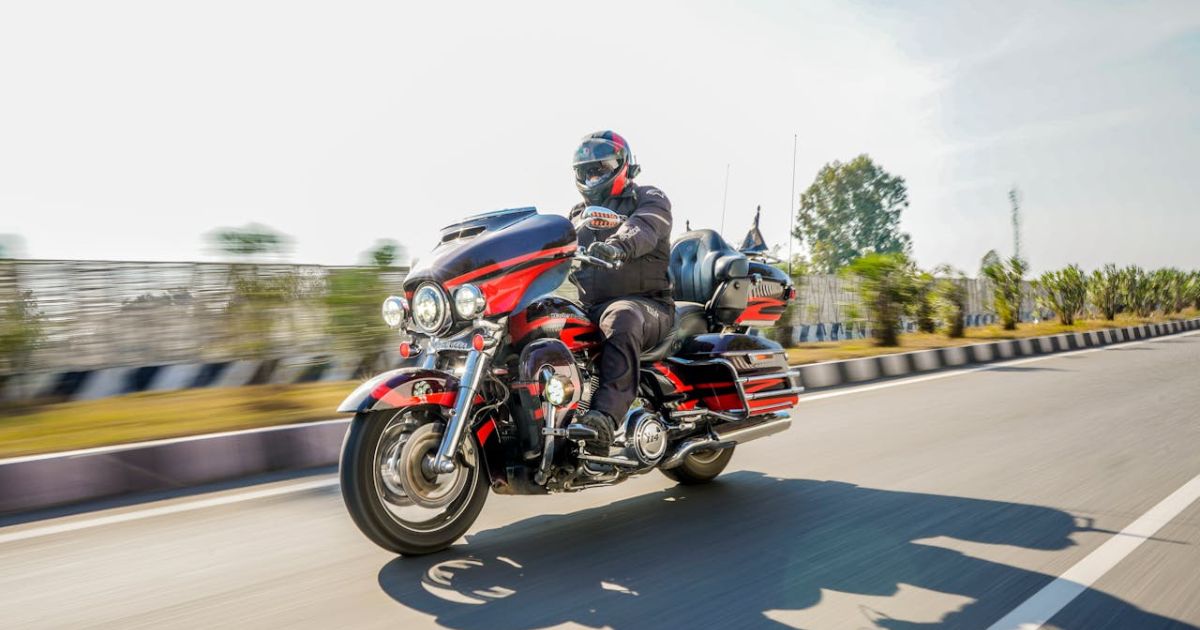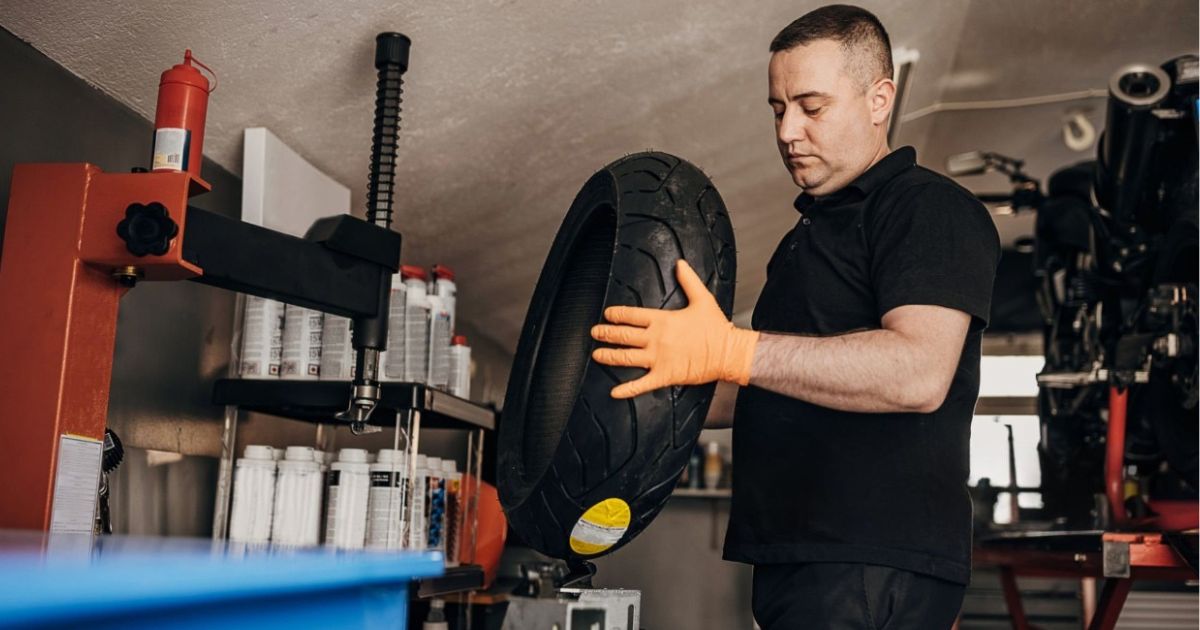
Hands-Free Drone for Motorcycle Vlogs: HoverAir X1 Pro Max Review
left for contents
Alright, buckle up, because we’re diving into a piece of tech that’s totally changing my riding vlogs – the HoverAir X1 Pro Max drone. Forget camera crews and bulky setups, this little gadget is a game-changer for solo riders wanting to capture their adventures. But, and this is key takeaway number one, it’s not always smooth sailing. We’ll get into the quirks and what to watch out for.
Secondly, prepare to ditch the controller. Seriously, this drone is all about hands-free, phone-free flying in many of its coolest modes.
And finally, takeaway number three: firmware updates are your friend. This drone is constantly evolving, and those updates are crucial to unlocking its true potential and ironing out the kinks. So, let’s get into the nitty-gritty of the HoverAir X1 Pro Max and see if it lives up to the hype for us motorcycle riders.
If you’d rather watch this review, here’s my original video on the topic:
HoverAir X1 Pro Max: A Rider’s Honest Take
Full disclosure right off the bat – I bought this drone with my own money. No freebies here.
I pre-ordered it on Kickstarter way back in August, so what you’re about to hear is my genuine customer experience, just like you if you decide to pick one up. I’m all about keeping it real and giving you the straight truth about gear, especially when it comes to capturing those epic rides.
First Impressions: Small Size, Big Potential
Let’s talk about the basics. The HoverAir X1 Pro Max is impressively lightweight, clocking in at under 200 grams. That’s crucial when you’re already packing riding gear. And the folding design? Genius. It becomes super compact, making it incredibly easy to toss in your backpack without taking up valuable space.
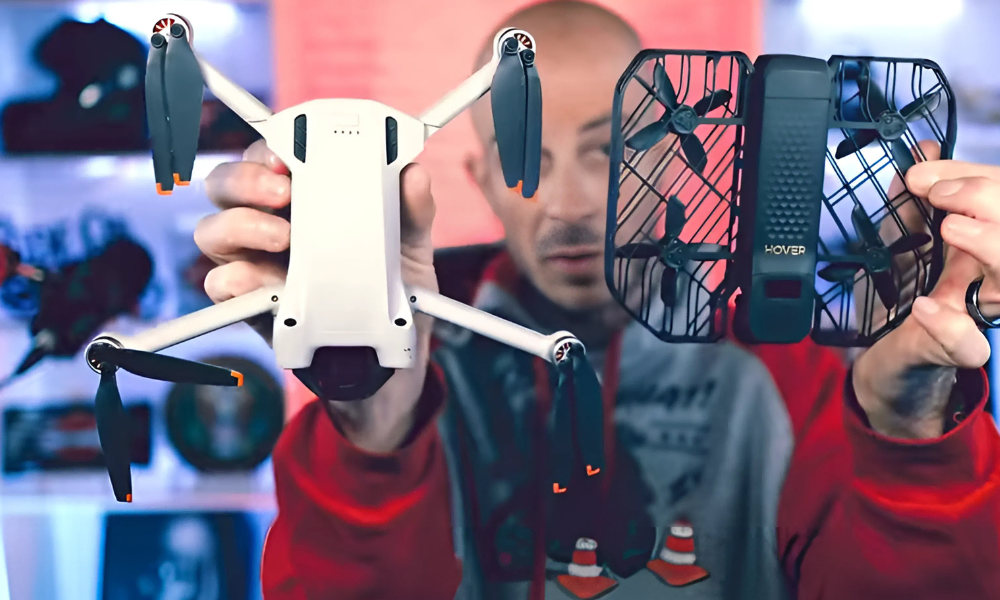
For comparison, I pulled out my DJI Mini 3 Pro. Side-by-side, you can see the DJI is noticeably thicker. Flipping them over, the HoverAir is a bit wider, but overall, it’s significantly more portable than the DJI.
When unfolded, the HoverAir is still more compact and takes way less time to set up than other drones I’ve used. This is a massive win for riding. When you stop for a quick photo or video op, the last thing you want is to fiddle with complicated gear. This thing is grab-and-go. I’ve got the Pro Max version, which shoots in glorious 8K and has HDR. There’s also a Pro version that shoots in 4K if you want to save a few bucks.
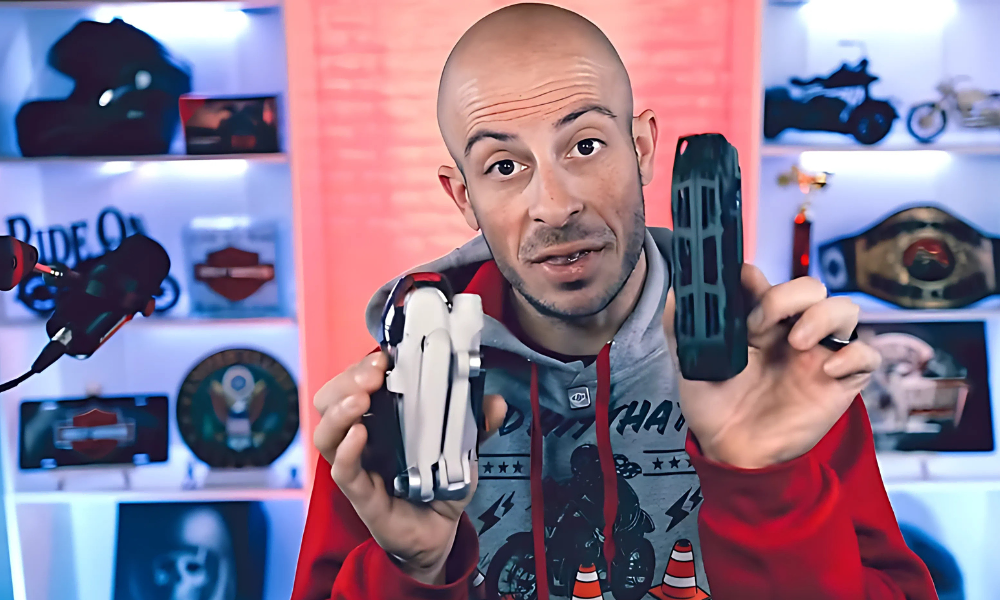
Hands-On: Flying Made Easy?
Okay, enough talk, let’s see this thing in action. I want to show you just how simple it is to use. Powering it on is ridiculously easy. Just unfold it, hit the power button, and boom, it’s alive.
It’s got a few different modes, but let’s start with Hover Mode. Press the button once, and it takes off right from your palm. Seriously, straight out of your hand.
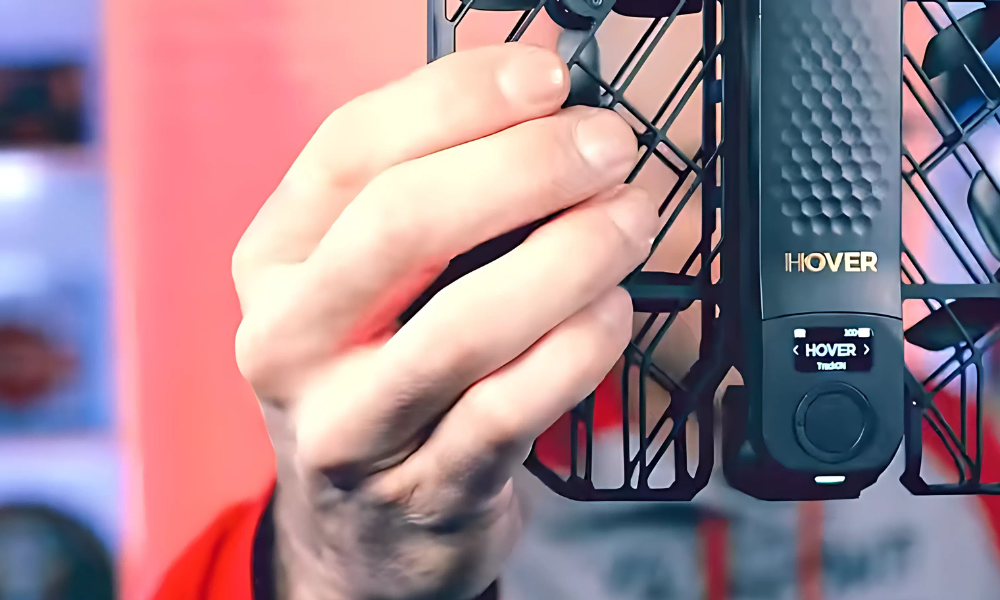
In Hover Mode, it stays put, but it’s also tracking. Move right, it follows. Move left, same thing. It’s surprisingly responsive, even in a small space.
Now, let’s try Follow Mode. Switching modes is just another quick press of the button. In Follow Mode, you can walk, and it should track you. Let’s see how it does in my basement studio here.
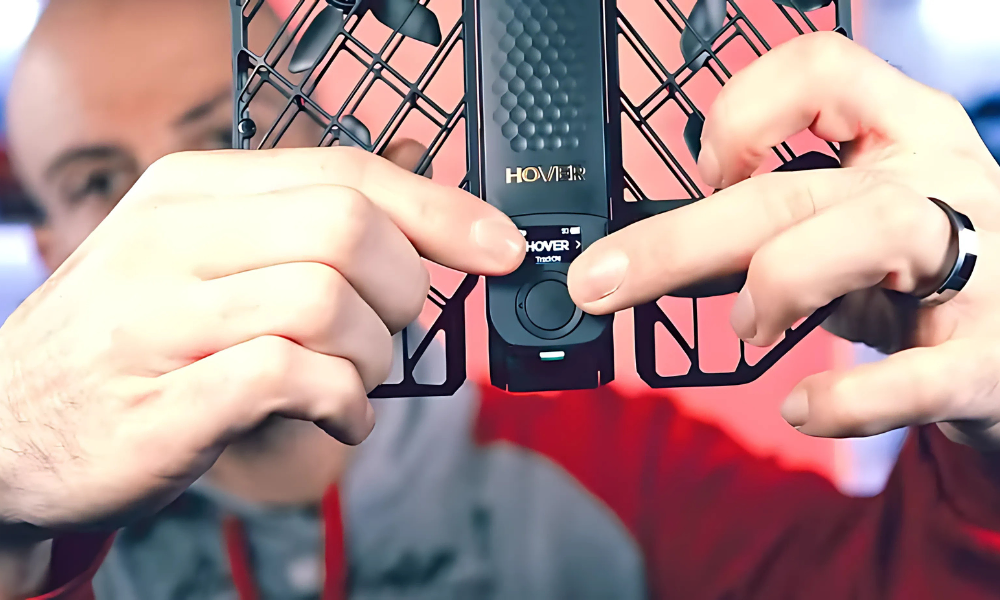
Okay, liftoff again. Give it a sec to lock onto you… and there it goes. It’s following me! Even in my not-so-bright basement. Obstacle avoidance seems pretty decent too. It’s got sensors to try and navigate around stuff.
Turning around… a little tight in here, but it’s keeping up. There it is! And to land, you just stick your hand underneath it, and it gently falls right into your palm. Super smooth.
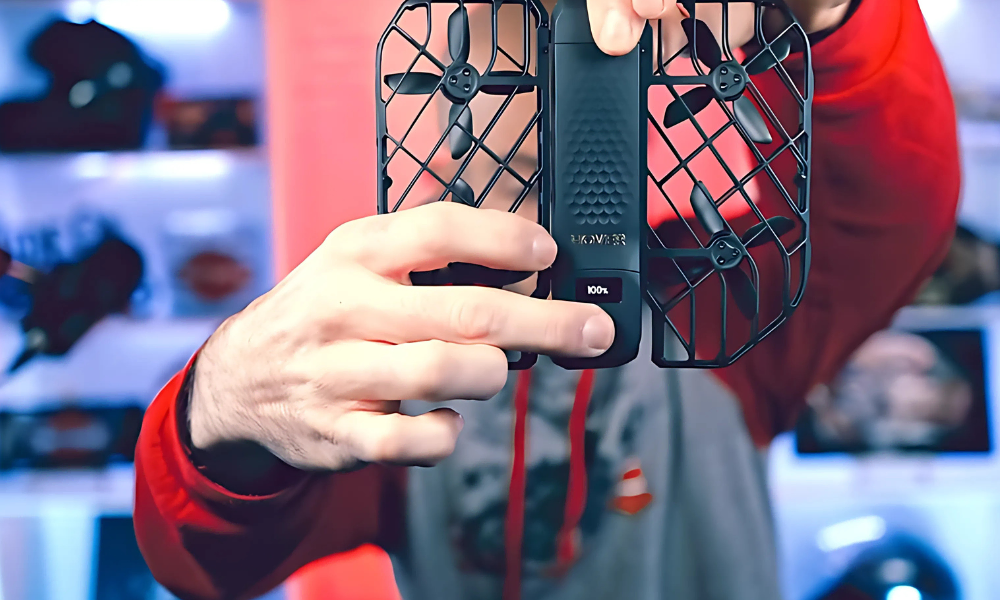
So, we’ve checked out Hover and Follow modes. The last mode I can demo inside here is Manual Mode, where you control it with your phone. Let me show you how that works.
App Control: Manual Mode for Precision Shots
Grab your phone, open the Hover app, and tap the drone icon. Pairing is really straightforward, especially the first time. Mine’s already set up. Then, hit “Manual Control,” and it connects to the drone.
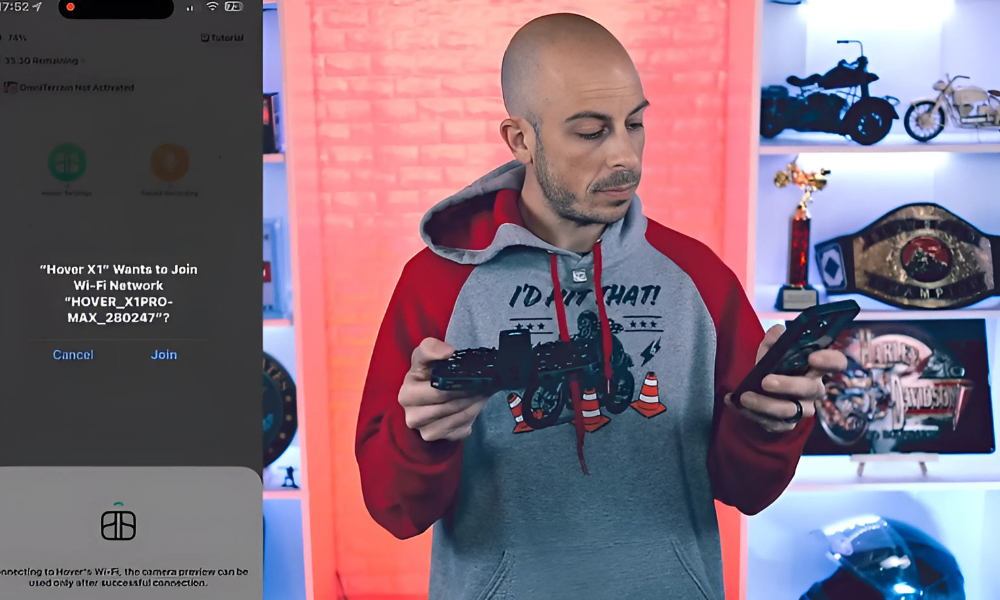
Tap “join,” and it connects. Switches over to manual control in about 10 seconds. Not bad at all. Once connected, just hit the center button to take off from your hand again.
Now, on your phone screen, you’ve got two virtual joysticks. Left stick controls turning and vertical movement, right stick handles side-to-side and forward/backward. It’s actually pretty intuitive.
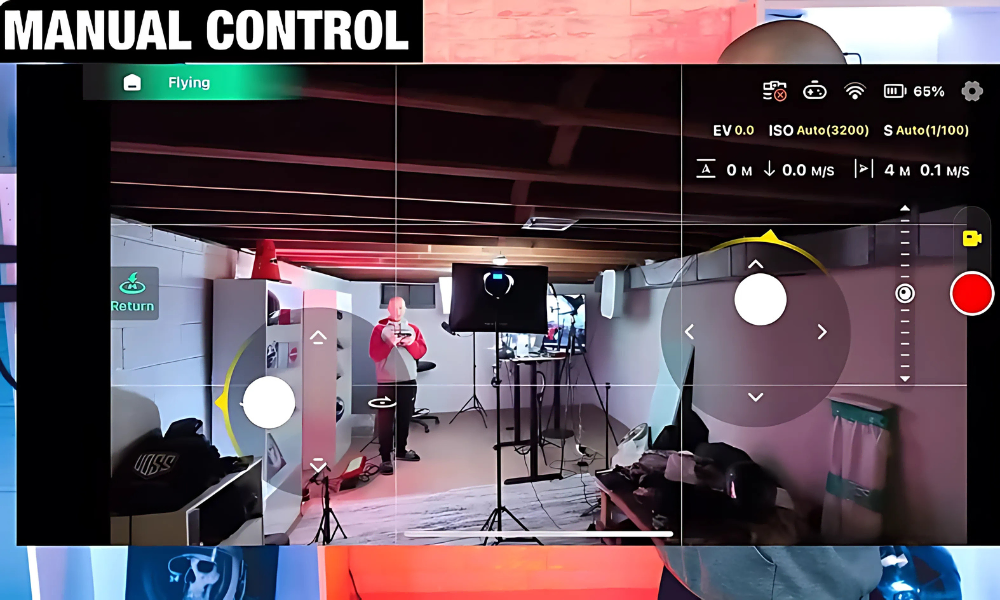
Let’s do a quick demo in the basement here. Bam! Super simple to fly around. Connection feels strong too. Honestly, I don’t see myself using manual mode a ton, as the whole point for me is the autonomous tracking.
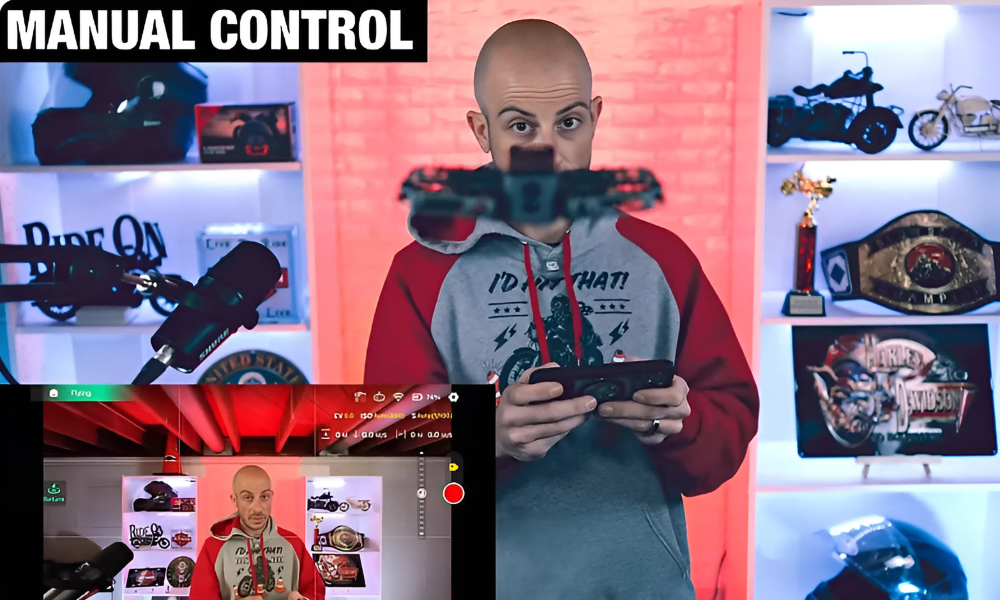
Landing in manual mode is the same – hand underneath, gentle landing. To power down, hold that center button again, folds up, and you’re done. That’s the beauty of this thing – quick, simple, and ready to go.
Versus the DJI Mini 3 Pro: Convenience Wins
Compared to my DJI Mini 3 Pro, the HoverAir is a breeze to set up. The DJI, while great, can be a bit of a hassle when you’re on the road. You’ve got to get the drone out, then the controller, boot them both up, make sure they connect… it just takes longer. And you’re carrying an extra controller.
Plus, those little joysticks on the DJI controller? You have to take them off for storage and screw them back on to fly. More fiddling, more time. When you’re trying to capture a ride, speed and simplicity are key.
Lightweight yet powerful, the DJI Mini 3 Pro delivers pro-level 4K video and intelligent features in a compact, under-249g drone.
- Shoots stunning 4K/60fps video and 48MP photos with advanced camera tech
- Tri-directional obstacle sensing and Return to Home for safer flying
- True Vertical Shooting and DJI RC with built-in HD display for effortless social sharing
- Lacks side obstacle sensors, limiting protection during lateral movement
Real-World Riding Footage: The Good, The Bad, and The Vest
It’s winter in Ohio right now, so riding is on hold, but I did get to test out some of the tracking modes before the snow hit. Let’s check out some footage.
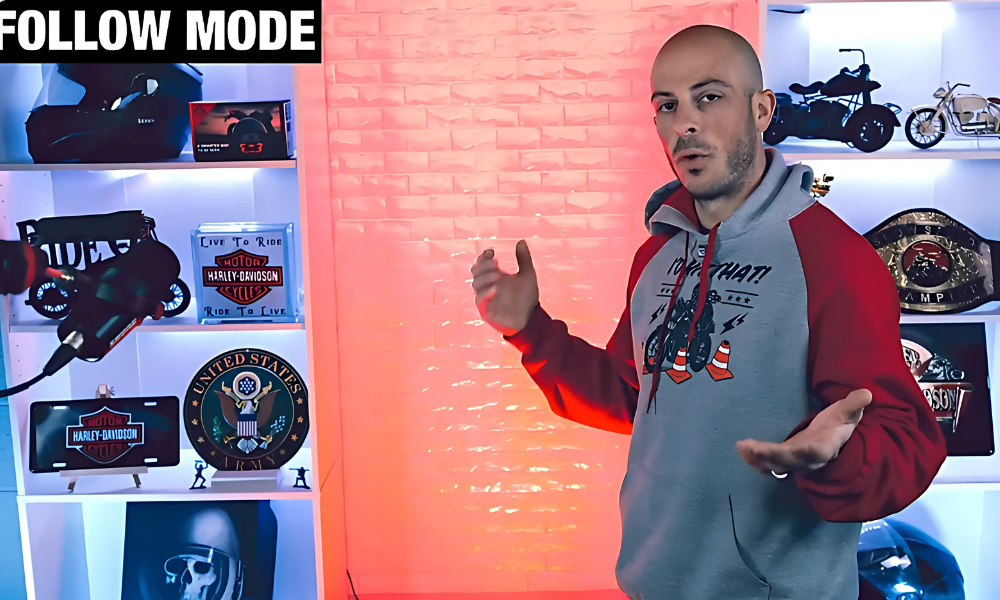
First up, Follow Mode. As you can see, it’s tracking me perfectly here. Doing some more dynamic moves, and it’s still locked on. But, and here’s where the “it’s not always sunshine and rainbows” part comes in…
In this next clip, I’m on the bike, in Follow Mode, but… it loses me. Right there. Hmm, okay. Same scenario, but one change: I took off my motorcycle vest.
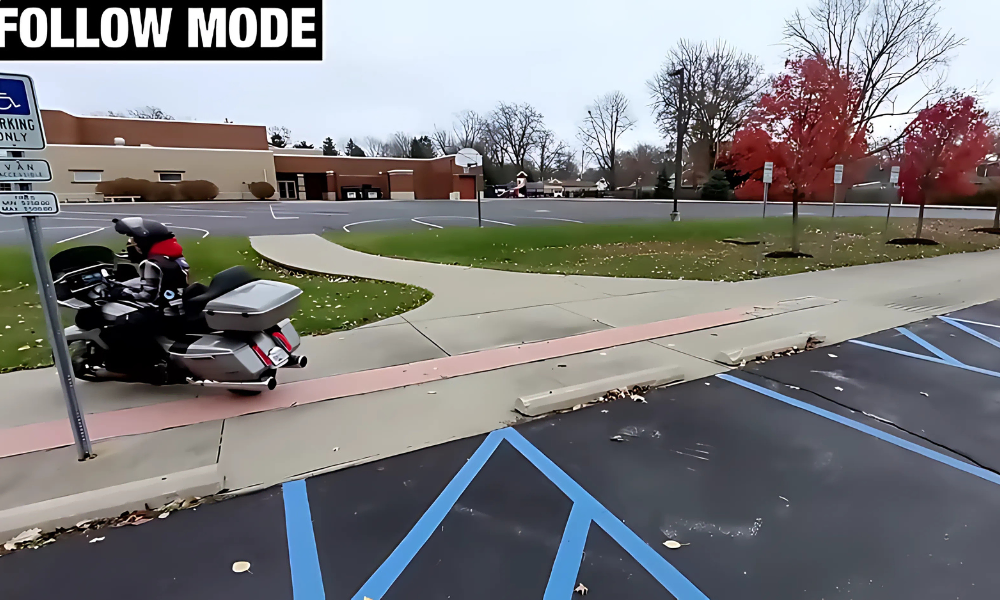
Big tip I learned: brighter clothing improves tracking accuracy. Vest off, problem solved. Tracked me perfectly that time.
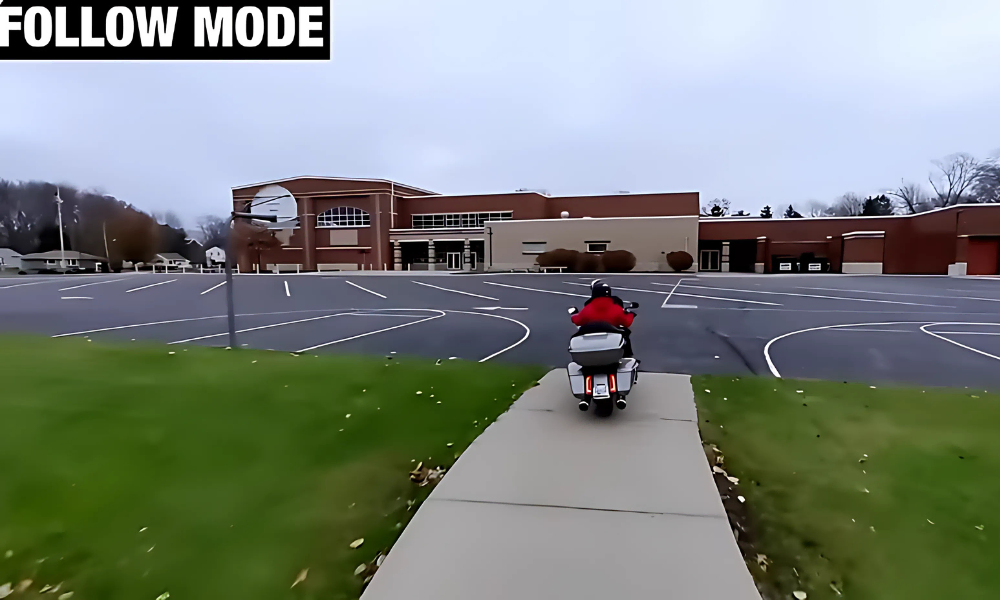
Next mode: Orbit. This one does a full 360 around you. I used this at my 4-year YouTube anniversary, and it looks pretty cool.
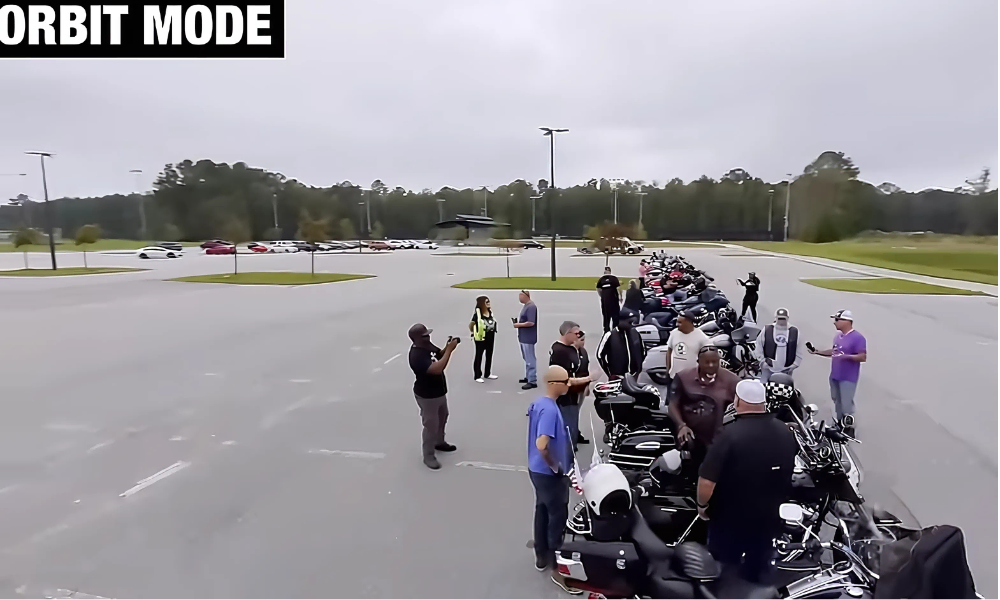
Then there’s Dolly Track mode. Drone flies directly in front of you. Pretty cool mode too.
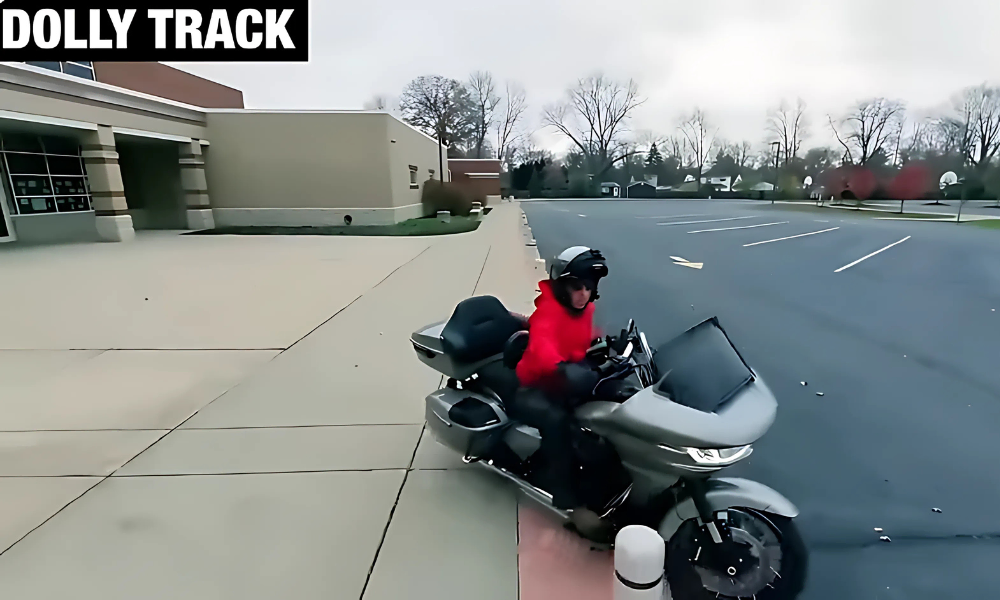
One thing I noticed, though, you gotta go somewhat slow for this to work well. Too fast, and you’ll go out of frame, and it’ll lose you.
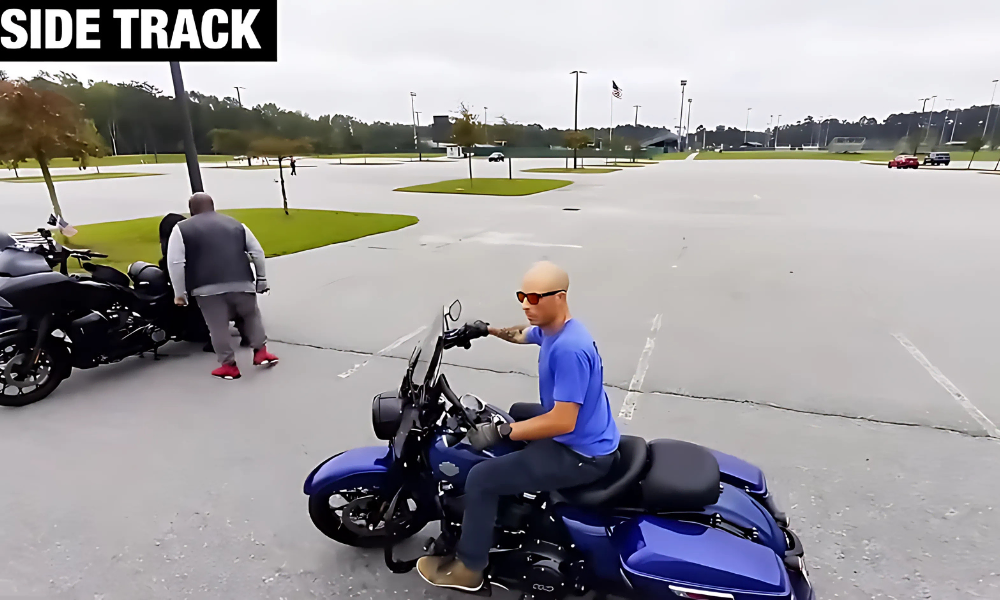
Moving on to Side Track mode. Name says it all – tracks you from the side. Like Dolly Track, you need to keep a moderate pace. But check this out, I flip around here, and it’s still tracking! Really like this mode.
Last mode for now: Bird’s Eye. Goes straight up, camera pointing down, doing a spiral. Does the same on the way down. Can create some really dynamic shots.
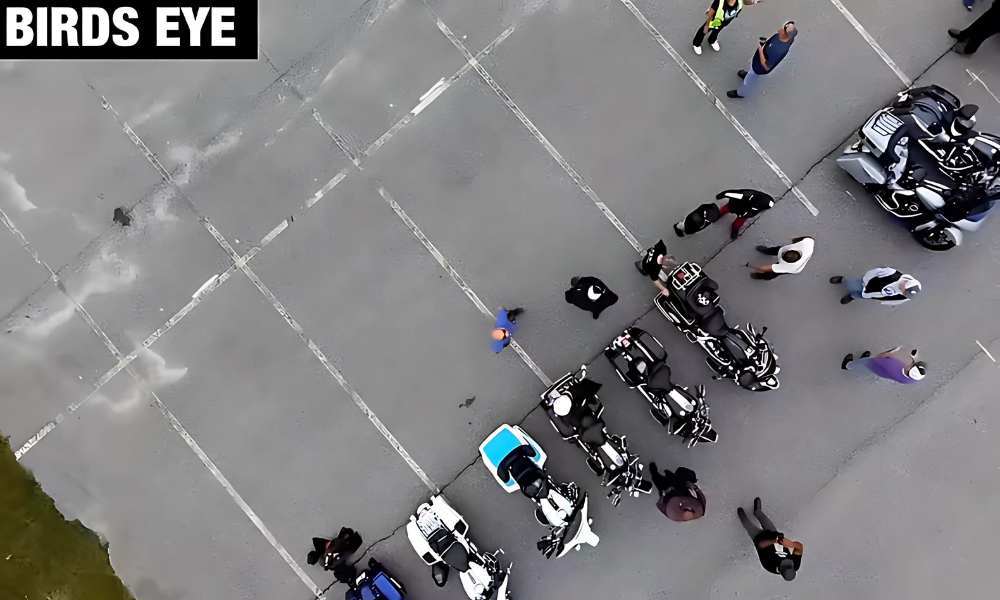
There are actually three more modes I haven’t tested yet: Zoom Out, Ski Mode, and the new Cycling Mode. Once riding season kicks off, I’ll be trying out Zoom Out and Cycling Mode for sure.
Glitches and Updates: A Work in Progress
About those tracking glitches you saw earlier… the good news is, firmware updates are making a real difference. Since I got this drone back in August, the developers have been constantly pushing updates. In just the two months I’ve been using it, tracking has improved dramatically. And they’re still working on making it even better. That’s a huge plus. This isn’t a static product; it’s evolving.
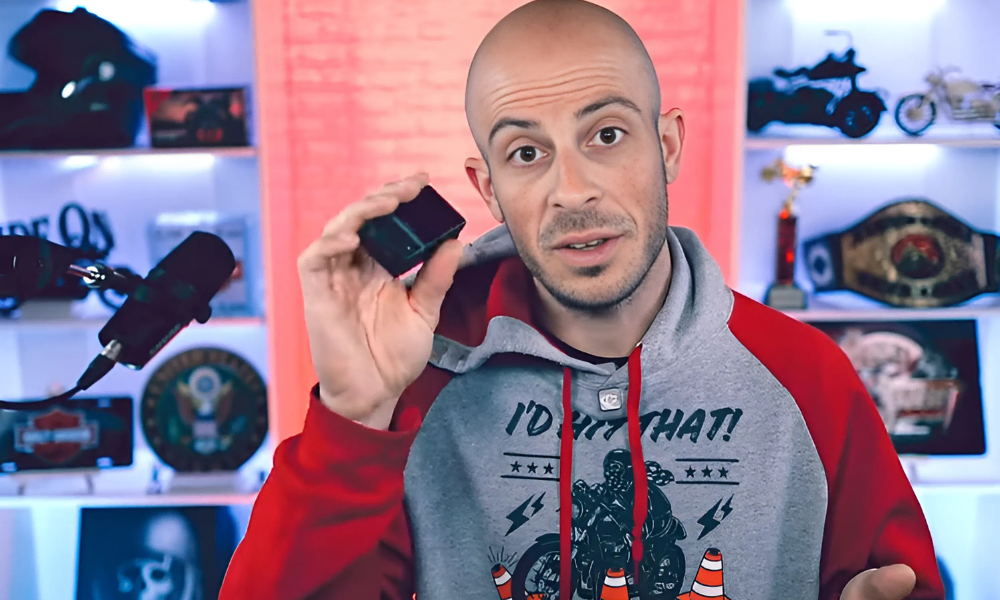
I also got the Cycling Combo, which includes this Beacon. It’s supposed to improve tracking and can record audio. You can even attach optional joysticks to it. Honestly, I don’t think you need the joysticks unless you plan on flying manually a lot.
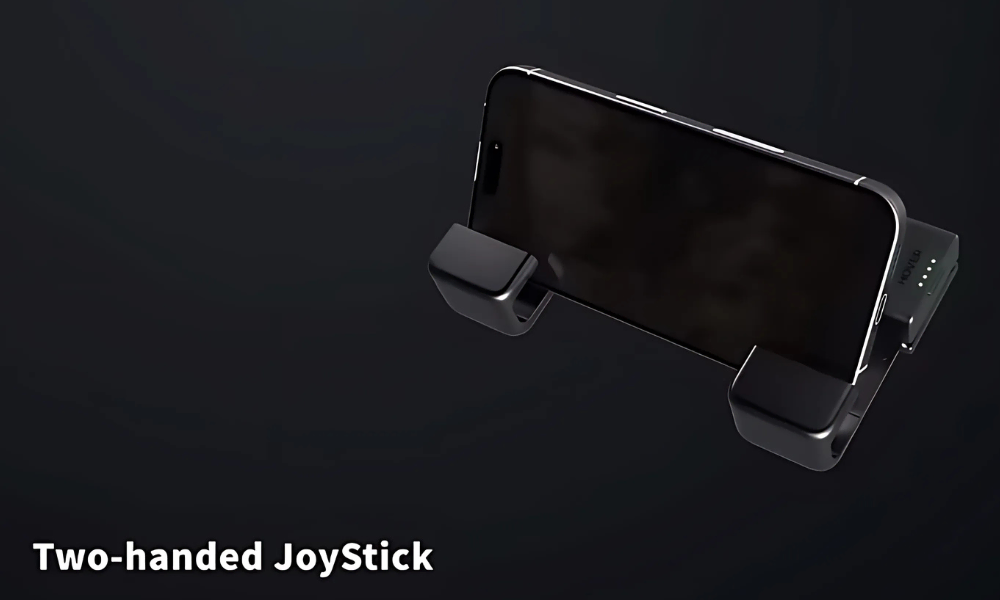
And the whole point for me is to avoid manual flying. As for the Beacon improving tracking, in my initial tests, I didn’t see a huge difference, but recent updates might have changed that. More testing needed there.
The Nitty-Gritty: Specs and Pricing
So, what do you really need to know about the HoverAir X1 Pro Max? Max follow speed is around 26 mph, but some modes work better at slower speeds. Battery life is about 16 minutes per charge. Best way to charge is with the charging hub. You can plug it into a power bank or wall outlet. Charging hub takes about 45 minutes for one battery or an hour for two. There’s an optional power case, but with extra batteries and a power bank compatible charging hub, I haven’t needed it.
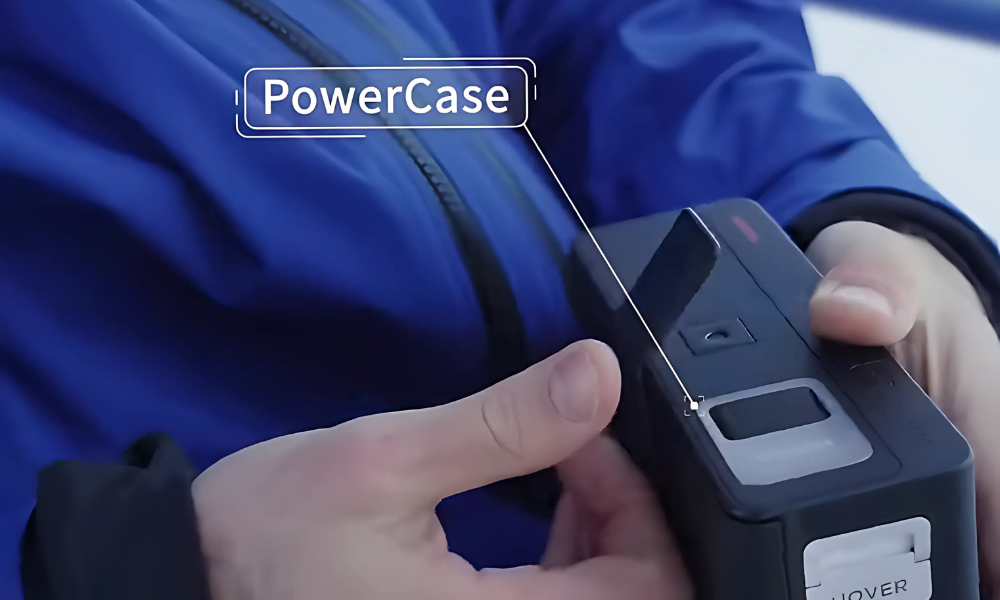
Durability is another big plus. The propellers are protected by these “highly elastic material guards.” Lighter than carbon fiber, but seriously tough. I’ve had a few… “unplanned landings,” and it’s held up great.
Okay, the big question: price. For casual riders, and those who aren’t pro content creators, I recommend the Pro version. Basic combo is around $499 – drone and one battery. But, I highly suggest getting extra batteries and the charging hub. For two extra batteries and the hub, you’re looking at around $716 total. Not bad at all.
If you’re a content creator or just want the best, go for the Pro Max. With two extra batteries and the charging hub, that’ll be around $916. Still fairly reasonable for a drone that shoots 8K, has HDR, and better frame rates.
Final Verdict: Rider-Friendly and Fun, With Room to Grow
What I really love about the HoverAir X1 Pro Max is the simplicity. Seriously, seconds to get it in the air. For motorcycle riders who want to capture their adventures without a ton of hassle, this drone is a solid option.
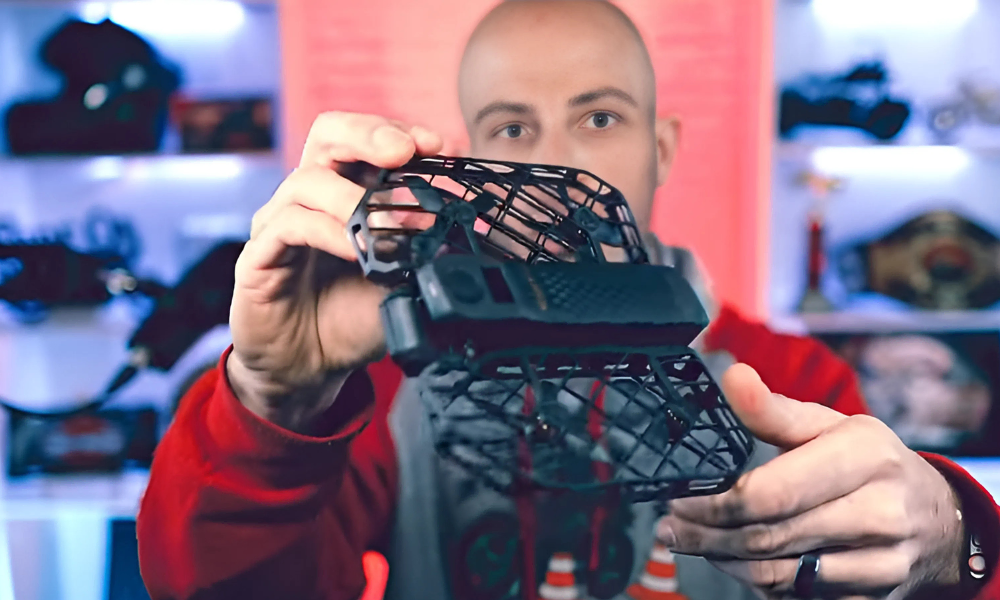
It’s compact, easy to use, and the tracking modes are getting better all the time with firmware updates. It’s not perfect, and you might encounter some glitches or tracking hiccups, especially in challenging conditions, but for grab-and-go riding footage, it’s pretty awesome.
Related
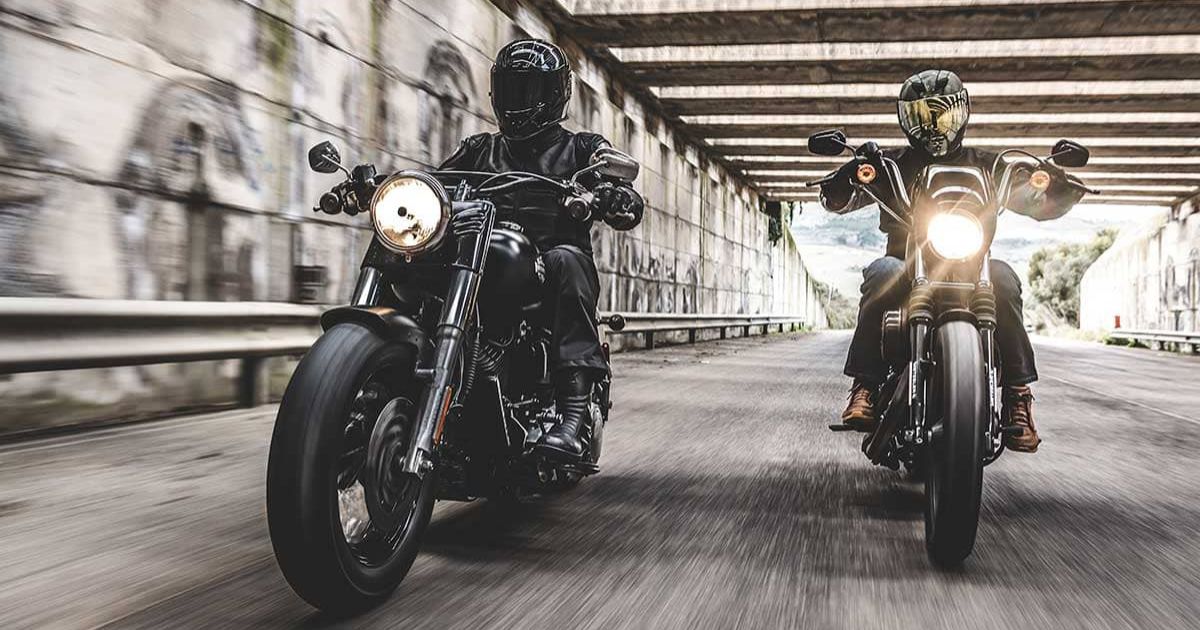
Best Cruiser Tires for Motorcycle Riders in 2025
Discover the best cruiser tires of 2025 for riders—tested for grip, comfort, mileage, and style to keep your V-Twin planted and confident.



